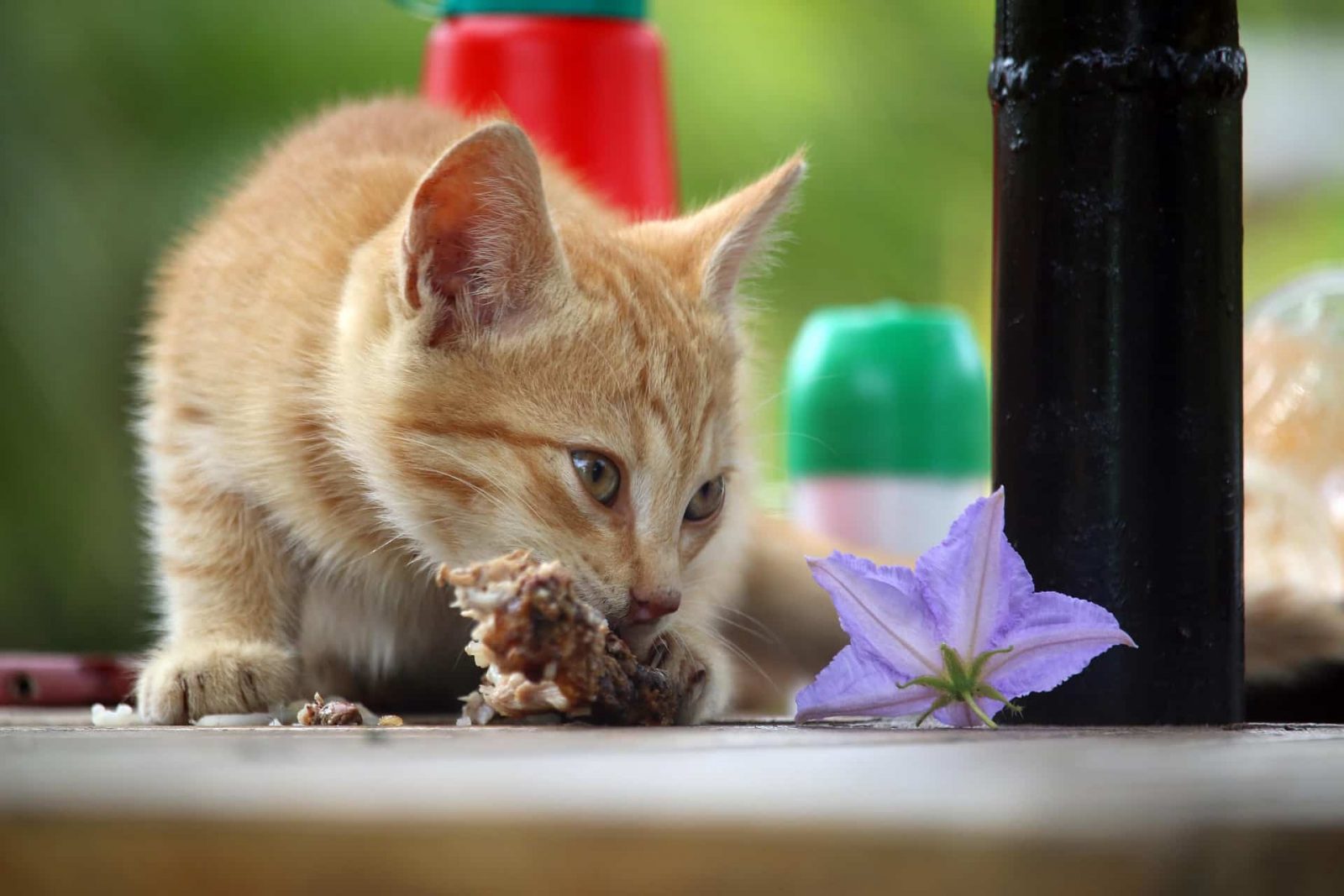Yes, cats can eat fish skin. Fish skin is a good source of omega-3 fatty acids, which are beneficial for your cat’s coat and skin.
Yes, cats can eat fish skin. In fact, many people believe that fish skin is actually good for them! Fish skin is a great source of omega-3 fatty acids, which are known to be beneficial for both humans and animals.
Omega-3 fatty acids help keep your cat’s coat healthy and shiny, and can also help reduce inflammation throughout the body.

Credit: epu.edu.iq
Quick Navigation
Are Dried Fish Skins Good for Cats?
Yes, dried fish skins are good for cats and can provide them with a variety of health benefits. Fish skin is a rich source of omega-3 fatty acids, which are essential nutrients for cats. Omega-3 fatty acids help to keep the coat healthy and shiny, and can also help to reduce inflammation in the body.
In addition, fish skin contains high levels of protein and collagen, which can help to keep the cat’s muscles and joints healthy.
Can Cats And Dogs Eat Fish Skin?
Yes, cats and dogs can eat fish skin. In fact, many pet owners believe that fish skin is a healthy addition to their pet’s diet. Fish skin is rich in omega-3 fatty acids, which are beneficial for joint health, brain function, and the coat.
It is also a good source of protein and vitamins A and D. However, it is important to note that fish skin should be cooked before feeding it to your pet. Raw fish skin can contain harmful bacteria that can make your pet sick.
Can Cats Eat Cooked Fish?
Yes, cats can eat cooked fish. In fact, many people think that fish is a healthy food for cats. Fish is a good source of protein and omega-3 fatty acids, which are beneficial for the coat and skin.
It’s important to make sure that the fish is cooked properly, as raw fish can contain bacteria that can make your cat sick. When feeding your cat cooked fish, be sure to remove any bones before giving it to them.
What Fish is Toxic to Cats?
Most people are aware that cats are obligate carnivores, meaning that they require animal protein to survive. What many people don’t know is that there are certain types of fish that can be toxic to cats. The most common type of toxic fish is the pufferfish, which contains a toxin called tetrodotoxin.
This toxin can cause severe neurological damage and even death in cats. Other types of fish that can be toxic to cats include eels, salmon, and trout. Symptoms of fish toxicity in cats include vomiting, diarrhea, seizures, and paralysis.
If your cat has consumed any type of fish, it is important to seek veterinary care immediately.
Human Foods that Are Actually Good for Cats
Can Cats Eat Fried Fish Skin
Yes, cats can eat fried fish skin. In fact, many people believe that fried fish skin is actually good for them! The fatty acids in the fish skin help to keep their coat healthy and shiny, and it also provides a great source of protein.
Can Cats Eat Fish Skin With Scales
Yes, cats can eat fish skin with scales. In fact, many people believe that fish skin with scales is a healthy and nutritious treat for cats. Fish skin with scales is a good source of omega-3 fatty acids, which are beneficial for your cat’s coat and skin.
Omega-3 fatty acids also help to keep your cat’s joints healthy.
How to Cook Salmon Skin for Cats
If you’re looking for a nutritious, delicious treat for your cat, look no further than salmon skin! Salmon skin is packed with protein and omega-3 fatty acids, which are great for your cat’s health. Plus, it’s easy to prepare and cook.
Here’s how to do it:
1. Start by cleaning the salmon skin. Use a sharp knife to remove any scales or excess fat from the skin.
Rinse the skin well under cold water.
2. Cut the salmon skin into small pieces that will be easy for your cat to eat.
3. Place the salmon skin in a single layer on a baking sheet lined with parchment paper or foil.
Bake at 200 degrees Fahrenheit for about 20 minutes, or until the salmon skin is dry and crispy. Let cool completely before serving to your cat.
Can Cats Eat Raw Salmon Skin
While there are many benefits to feeding your cat a raw diet, there are also some risks. One of the risks is feeding them raw salmon skin. Salmon skin contains a parasite that can be harmful to cats if ingested.
The parasite is called Neorickettsia helminthoeca and can cause an infection called salmon poisoning disease. Symptoms of salmon poisoning disease include fever, vomiting, diarrhea, and lethargy. If your cat eats raw salmon skin and begins showing any of these symptoms, it is important to take them to the vet immediately.
While most cases of salmon poisoning disease can be treated successfully, it can be deadly if left untreated.
Conclusion
Cats are obligate carnivores, which means that they require animal protein to survive. Fish is a good source of animal protein for cats, but it’s important to make sure that the fish skin is removed before feeding it to your cat. Some people believe that feeding cats fish skin can lead to health problems like pancreatitis, but there is no scientific evidence to support this claim.
If you choose to feed your cat fish skin, make sure it’s cooked thoroughly and boneless to avoid any choking hazards.
Leave a Reply